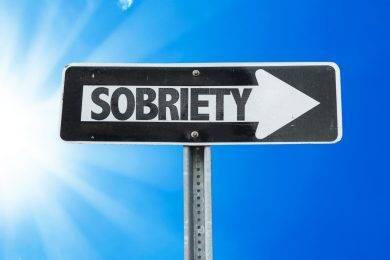Are you recovering from a substance use disorder? If so, well done—you know best what it took to make that all-important step.
What you may not know is that the road ahead is just as dangerous. About 85% of people will experience a relapse within a year of treatment. To find lasting recovery, you’ll need to develop the right coping mechanisms.
How do you go about developing these mechanisms? You can start by taking heed of our five best tips for sober living.
1. Recognize Relapse Signs
Relapse begins long before picking up a drug or drink. If you don’t recognize the warning signs, a relapse can sneak up on you. It often comes in three phases: emotional relapse, mental relapse, and physical relapse.
Most warning signs of relapse involve going back to addictive thinking patterns. These make you think less rationally and behave less responsibly. At some point, drug use will seem like a logical way to escape from pain.
2. Avoid Bad Relationships
One of the biggest benefits of sobriety is that it gives you a new perspective. That may help you discover that some of your past relationships were toxic for you. Maintaining them can contribute to a relapse.
Oftentimes, it will be clear what these relationships are. For example, we all know to stay away from old drinking buddies. Sometimes, though, it will be your closest ones that are enabling you, usually without knowing it.
3. Identify Personal Triggers
Chances are, you have some external triggers that you associate with drug use. These can be certain places, people, or even situations. You also have internal triggers, such as thoughts, feelings, and emotions.
The key to living sober is to know which triggers are your biggest risks. That way, you can create a plan for avoiding them. Common triggers include:
• Stress
• Environmental cues
• Relationship issues
• Financial issues
• Emotional distress
4. Look for Support
Spending time with supportive people can do wonders for developing a healthier lifestyle. If you find it difficult to make sober friends, find a support group. For example, you can try joining a detox center near you.
Seeking help from a therapist is also a good idea. They can help you learn new coping skills and address reoccurring mental health conditions. They’ll also teach you how to better enjoy sobriety benefits.
5. Focus on Your Finances
The longer your addiction goes on, the more likely you’re to develop financial issues. As mentioned above, this can be a trigger for relapse. To prevent this from happening, try to get your finances in order.
One way to do that is to find a job that matches your skills. Reach out to a career coach to update your resume and start going to job interviews. Once you return to work, consider turning over your money to someone you trust.
Sober Living Is the Key to a Happy Life
At the end of the day, sober living is all about taking care of yourself. Incorporating the above strategies will help you kickstart that process. If you encounter setbacks along the way, do your best to learn from them.
Interested in learning more about the benefits of being sober? Keep reading our Health section!
For Nicole Ann Pore, as cliche as it sounds, there is no place like home. She believes that is not only a responsibility but also a privilege to create and take care of a house where home is built. Nicole writes on topics that reveal the essence of a nice home, as well as home care and improvement tips. She is a daytime writer for Wincrest Bespoke, one of New South Wales’ most experienced home residential builders. | Nicole graduated Cum Laude from De La Salle University Manila, Philippines with a Bachelor’s Degree in Communication Arts.











